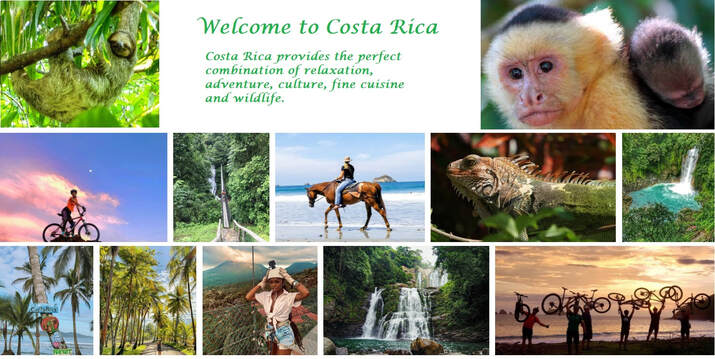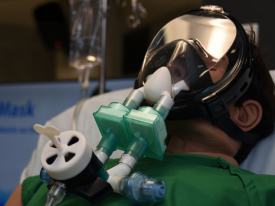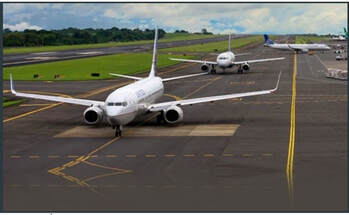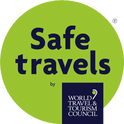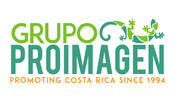Starting October 26th the COVID-19 Test Will No Longer Be Required to Enter Costa Rica
With the objective of reactivating tourism and employment in the country, especially in the rural areas of Costa Rica including Guanacaste, the North Zone, Central and South Pacific and the Caribbean, the Government announced today during a press conference that national and foreign travelers flying in will no longer need a Covid-19 negative test to enter the country.
“This decision is taken in view of the reopening of borders to all countries that will take place November 1st, and taking into consideration the statement by the Pan American Health Organization issued October 9th that affirms that it is unnecessary to demand tests or order quarantines for the reinstating of international flights”, explained Gustavo Segura, Minister of Tourism.
This means that as of October 26th in addition to the regular travel requirements in place for citizens of different countries, travelers wishing to enter Costa Rica must complete a digital epidemiological health pass and purchase travel insurance that covers accommodation in case of quarantine and medical expenses due to COVID-19.
“The sustainability of this measure will depend on the evolution of the pandemic in national territory”, clarified Segura.
“I reiterate my message to the companies in the tourism sector to continue to apply all the sanitary protocols, and for national and international tourists to travel responsibly and follow all the preventive measures in place”, concluded the Minister.
The reopening of the air border is of great importance to reactive the economy and employment through the tourism industry which is one of the main economic engines of the country, representing almost 10 points of the GNP and creating over 600 thousand direct and indirect jobs.
The Costa Rica Star
By Laura Alvarado – October 22, 2020
“This decision is taken in view of the reopening of borders to all countries that will take place November 1st, and taking into consideration the statement by the Pan American Health Organization issued October 9th that affirms that it is unnecessary to demand tests or order quarantines for the reinstating of international flights”, explained Gustavo Segura, Minister of Tourism.
This means that as of October 26th in addition to the regular travel requirements in place for citizens of different countries, travelers wishing to enter Costa Rica must complete a digital epidemiological health pass and purchase travel insurance that covers accommodation in case of quarantine and medical expenses due to COVID-19.
“The sustainability of this measure will depend on the evolution of the pandemic in national territory”, clarified Segura.
“I reiterate my message to the companies in the tourism sector to continue to apply all the sanitary protocols, and for national and international tourists to travel responsibly and follow all the preventive measures in place”, concluded the Minister.
The reopening of the air border is of great importance to reactive the economy and employment through the tourism industry which is one of the main economic engines of the country, representing almost 10 points of the GNP and creating over 600 thousand direct and indirect jobs.
The Costa Rica Star
By Laura Alvarado – October 22, 2020
Costa Rica Will Reopen Doors to Tourists from All the States of the U.S. as of Nov.1
Residents and citizens of the United States will be able to enter Costa Rica again starting November 1st, and before this date, on October 15th, access will be granted to citizens and residents of the states of Florida, Georgia, and Texas.
U.S. citizens from authorized states wishing to enter Costa Rica must complete a digital epidemiological health pass, obtain a negative PCR-RT coronavirus test taken within 72 hours of their departure from the United States, and purchase travel insurance that covers accommodation in case of quarantine and medical expenses due to COVID-19.
U.S. citizens from authorized states wishing to enter Costa Rica must complete a digital epidemiological health pass, obtain a negative PCR-RT coronavirus test taken within 72 hours of their departure from the United States, and purchase travel insurance that covers accommodation in case of quarantine and medical expenses due to COVID-19.
Getting ready for your visit to Costa Rica
Costa Rica response to the Coronavirus (COVID-19)
When Can We Travel to Costa Rica?
Costa Rica Adds Five More States and Washington D.C. to Tourism List
Costa Rica Adds Five More States and Washington D.C. to Tourism List
Costa Rica on Thursday night announced that Americans from six more states—Maryland, Virginia, Colorado, Massachusetts, and Pennsylvania—along with residents of Washington D.C., will be permitted to enter the country over the next four weeks.
Residents from Connecticut, Maine, New Hampshire, New Jersey, New York, Vermont, Maryland, Virginia, Colorado, Massachusetts, Pennsylvania, and Washington D.C. will be able to enter on Sept 1, while those from Colorado, Massachusetts, and Pennsylvania will be allowed to enter two weeks later on Sept. 15.
Costa Rica on Thursday night announced that Americans from six more states—Maryland, Virginia, Colorado, Massachusetts, and Pennsylvania—along with residents of Washington D.C., will be permitted to enter the country over the next four weeks.
Residents from Connecticut, Maine, New Hampshire, New Jersey, New York, Vermont, Maryland, Virginia, Colorado, Massachusetts, Pennsylvania, and Washington D.C. will be able to enter on Sept 1, while those from Colorado, Massachusetts, and Pennsylvania will be allowed to enter two weeks later on Sept. 15.
We are ready to help you.
When you travel with Rain Forest Tours, you’re choosing to explore Costa Rica : Peace of Mind Travel Plan
Costa Rica Increases Frequency of International Flights as of September 13
September 5, 2020,
The Costa Rican Tourism Board (ICT) confirmed that as of September 13 the country will increase gradually, but significantly, the number of authorized flights from the United States.
As of that date, United Airlines will fly daily from Houston, Texas to the Juan Santamaría Airport and three times a week to the Daniel Oduber Airport in Liberia, Guanacaste. It is possible that the number of flights authorized will increase again in October, month in which United Airlines also expects to fly four times a week from Newark, New Jersey four times a week to Juan Santamaría Aiport and once a week (Saturdays) to Liberia, Guanacaste.
In total this increase represents 15 more flights a week in September and 18 more as of October.
By the end of October, United Airlines will also resume flights from Colorado.
U.S. citizens from authorized states wishing to enter Costa Rica must complete a digital epidemiological health pass, obtain a negative PCR-RT coronavirus test taken within 72 hours of their departure from the United States, and purchase travel insurance that covers accommodation in case of quarantine and medical expenses due to COVID-19. U.S. tourists must also demonstrate, via a valid driver’s license or State ID card, that they live in one of the authorized states. No forms of documentation establishing residency in these select states other than a valid driver’s license or State ID card will be accepted at this time.
Permanent/Temporary Residents of Costa Rica may enter the country via air regardless of where they are coming from but must present the following documentation: 1) Passport, 2) Valid DIMEX, 3) evidence Caja payments are up to date and 4) a completed Health Pass (Pase de Salud). Costa Rican Permanent/Temporary Residents and Costa Rican citizens must complete a 14-day quarantine which can be waived if the travelers are 1) arriving from one of a list of authorized countries, 2) have proof of stay for the past 14 days in that country, and 3) carry a negative COVID-19 test (PCR-RT) taken no more than 72 hours before their flight to Costa Rica.
Tourists from authorized states will be allowed entry to the country even if they make a connection or stop in a currently unauthorized country, as long as they do not leave the airport in that destination. For instance, a tourist that takes a flight from the airport of Newark in New Jersey which makes a stop in Panama will be able to enter Costa Rica.
By Laura Alvarado – The Costa Star
The Costa Rican Tourism Board (ICT) confirmed that as of September 13 the country will increase gradually, but significantly, the number of authorized flights from the United States.
As of that date, United Airlines will fly daily from Houston, Texas to the Juan Santamaría Airport and three times a week to the Daniel Oduber Airport in Liberia, Guanacaste. It is possible that the number of flights authorized will increase again in October, month in which United Airlines also expects to fly four times a week from Newark, New Jersey four times a week to Juan Santamaría Aiport and once a week (Saturdays) to Liberia, Guanacaste.
In total this increase represents 15 more flights a week in September and 18 more as of October.
By the end of October, United Airlines will also resume flights from Colorado.
U.S. citizens from authorized states wishing to enter Costa Rica must complete a digital epidemiological health pass, obtain a negative PCR-RT coronavirus test taken within 72 hours of their departure from the United States, and purchase travel insurance that covers accommodation in case of quarantine and medical expenses due to COVID-19. U.S. tourists must also demonstrate, via a valid driver’s license or State ID card, that they live in one of the authorized states. No forms of documentation establishing residency in these select states other than a valid driver’s license or State ID card will be accepted at this time.
Permanent/Temporary Residents of Costa Rica may enter the country via air regardless of where they are coming from but must present the following documentation: 1) Passport, 2) Valid DIMEX, 3) evidence Caja payments are up to date and 4) a completed Health Pass (Pase de Salud). Costa Rican Permanent/Temporary Residents and Costa Rican citizens must complete a 14-day quarantine which can be waived if the travelers are 1) arriving from one of a list of authorized countries, 2) have proof of stay for the past 14 days in that country, and 3) carry a negative COVID-19 test (PCR-RT) taken no more than 72 hours before their flight to Costa Rica.
Tourists from authorized states will be allowed entry to the country even if they make a connection or stop in a currently unauthorized country, as long as they do not leave the airport in that destination. For instance, a tourist that takes a flight from the airport of Newark in New Jersey which makes a stop in Panama will be able to enter Costa Rica.
By Laura Alvarado – The Costa Star
It’s Official Costa Rica Won’t be Opening For Tourism Until Aug 1st
The Ministry of Health in Costa Rica confirmed 152 new cases this Friday, for a total of 2,836 positive cases of Covid-19 of the country, out of which, 1,280 have already recovered, while 36 are hospitalized 6 in the intensive care unit.
26,866 people have tested negative.
Pilar Garrido, Minister of Planning, referred to the reopening of economic activities in the country:
-Counties and districts that are currently under orange alert and an additional list of districts under yellow alert that we include below* will NOT be able to reopen as planned in phase 3, businesses and commerce must continue with the restrictions as they are at this time.
-The rest of the country will move forward with phase 3 which involves:
Commercial stores, theaters, movie theaters and museums to a maximum 50% of their capacity, in the case of theaters, movie theaters, and museum tickets, these can only be sold online, and social distancing must be kept in the facilities.
Churches can reopen with a maximum of 75 people in attendance and the mandatory social distance.
Access to the beaches is allowed now from 5:00 a.m. to 9:30 a.m. maintaining “social bubbles”.
Vehicular transit restrictions remain in place under the same schedule as the past weeks. Bars, casinos, etc. must remain closed.
The government announced it will reopen its borders on August 1. More information will be offered in the upcoming weeks, flights will resume gradually and initially only between some countries in Europe and Canada.
*Under Orange Alert:
Districts of Upala, San José (Pizote), Delicias, Yolillal and Canalete in the county of Upala.
Southeast sector of the district of la Fortuna in San Carlos
Districts of Cariari, Colorado, La Rita and Roxana del Cantón de Pococí.
Districts of Desamparados, Patarrá, Los Guido, San Miguel, San Rafael Abajo, San Rafael Arriba, San Juan de Dios of the county of Desamparados.
Communities of La Vega and Bonanza of the district of Florencia of San Carlos
District of Pavas (Cantón de San José)
District of Peñas Blancas county of San Ramón
Distric of Los Chiles county of Los Chiles
District of Paquera county of Puntarenas
County of Alajuelita
County of Corredores
Districts of San José under Yellow Alert that CANNOT reopen commerce: Ulloa, La Uruca, Merced, Hospital, Hatillo, Mata Redonda, Catedral, Curridabat, San Francisco de Dos Rios, San Sebastián, Aserrí, San Gabriel, Corralillo and Zapote.
The Costa Rica Star
June 27, 2020
26,866 people have tested negative.
Pilar Garrido, Minister of Planning, referred to the reopening of economic activities in the country:
-Counties and districts that are currently under orange alert and an additional list of districts under yellow alert that we include below* will NOT be able to reopen as planned in phase 3, businesses and commerce must continue with the restrictions as they are at this time.
-The rest of the country will move forward with phase 3 which involves:
Commercial stores, theaters, movie theaters and museums to a maximum 50% of their capacity, in the case of theaters, movie theaters, and museum tickets, these can only be sold online, and social distancing must be kept in the facilities.
Churches can reopen with a maximum of 75 people in attendance and the mandatory social distance.
Access to the beaches is allowed now from 5:00 a.m. to 9:30 a.m. maintaining “social bubbles”.
Vehicular transit restrictions remain in place under the same schedule as the past weeks. Bars, casinos, etc. must remain closed.
The government announced it will reopen its borders on August 1. More information will be offered in the upcoming weeks, flights will resume gradually and initially only between some countries in Europe and Canada.
*Under Orange Alert:
Districts of Upala, San José (Pizote), Delicias, Yolillal and Canalete in the county of Upala.
Southeast sector of the district of la Fortuna in San Carlos
Districts of Cariari, Colorado, La Rita and Roxana del Cantón de Pococí.
Districts of Desamparados, Patarrá, Los Guido, San Miguel, San Rafael Abajo, San Rafael Arriba, San Juan de Dios of the county of Desamparados.
Communities of La Vega and Bonanza of the district of Florencia of San Carlos
District of Pavas (Cantón de San José)
District of Peñas Blancas county of San Ramón
Distric of Los Chiles county of Los Chiles
District of Paquera county of Puntarenas
County of Alajuelita
County of Corredores
Districts of San José under Yellow Alert that CANNOT reopen commerce: Ulloa, La Uruca, Merced, Hospital, Hatillo, Mata Redonda, Catedral, Curridabat, San Francisco de Dos Rios, San Sebastián, Aserrí, San Gabriel, Corralillo and Zapote.
The Costa Rica Star
June 27, 2020
Costa Rica Prepares for COVID-19 Spike With Incredible Nationally Made VentilatorUniversity of Costa Rica Launches First Mechanical Ventilator Designed and Made in Costa Rica
Doctors from the University of Costa Rica (UCR) have developed the first non-invasive ventilator for patients suffering from COVID-19. |
Called Fluxus Mask, the device is both a breathing machine and an isolation mask to stop the spread of the coronavirus. It was created out of a growing concern that COVID was spreading globally, and there would not be enough mechanical ventilators for the demand if the pandemic continued to explode.
Many affected countries (US, Italy, France, Brazil) have been unable to meet the growing demand for ventilators due to lack of supplies, supply chain hold-ups and cost of the equipment. A traditional ventilator can cost up to $50,000, especially if purchased on the black market, but the average cost is $10,000 per unit. The Fluxus Mask will cost $2,000.
The group of designers was comprised of Jean Carlo Segura Aparicio and Lizbeth Salazar Sanchez of the UCR School of Medicine, Olman Coronado Garcia, respiratory therapist of CAJA, and Miguel Imbach Bartol and Pablo Gonzalez Lucas, who collaborated through the private company Lucas ElectroHidraulica. This group labored for four months at a feverish pace to develop the first prototype, which has now passed all preliminary clinical tests, and awaits final authorization from the Ministry of Health.
The Fluxus Mask is unique because it does not depend on electricity to function. Many rural health clinics, and most ambulances, lack a reliable source of electricity. A second advantage is that patients are not required to be intubated, the mask is noninvasive. The isolation mask reduces the risk of viral spread to medical personnel. Finally, Fluxus Mask promises to be low cost to manufacture.
The design team chose to work with only materials able to be sourced locally, including computer printed material, and locally available filters, valves and tubes. Filters are washable and reusable. Every effort was made to design a device able to be 100% manufactured and serviced in Costa Rica. The design team sought to avoid the error of other countries who have had to rely on China for their devices and parts.
Costa Ricans are famous for being able to “MacGyver” things, to make or repair something in an improvised or inventive way, making use of whatever items are at hand. This is how the Fluxus Mask was created, patterned after scuba gear, using a compressed air cylinder which allows patients to breathe on their own, as with scuba gear, with no electricity needed. The device is ingenious. It consists of an isolation mask, conduction valves, and bio filters.
The fundamental goal of the design team was to prevent patients from arriving at such a critical level of illness that they required intubation. Said Miguel Inbach Bartol, “Just imagine, for example, that a person suspected of having COVID-19 arrives at the clinic or EBAIS. He can be immediately masked with the Fluxus Mask, while physicians attend to him without fear of viral spread to them or other patients.”
The next step for this wonderful device is start-up funding. Any individuals or organizations interested in helping to fund this life saving project should contact Dr. Jean Carlo Segura Aparicio at 506.2511.5910, or via email at [email protected].
University of Costa Rica is to be commended for the work they are doing in the battle against COVID-19.
June 22, 2020 by The Costa Rica Star
Many affected countries (US, Italy, France, Brazil) have been unable to meet the growing demand for ventilators due to lack of supplies, supply chain hold-ups and cost of the equipment. A traditional ventilator can cost up to $50,000, especially if purchased on the black market, but the average cost is $10,000 per unit. The Fluxus Mask will cost $2,000.
The group of designers was comprised of Jean Carlo Segura Aparicio and Lizbeth Salazar Sanchez of the UCR School of Medicine, Olman Coronado Garcia, respiratory therapist of CAJA, and Miguel Imbach Bartol and Pablo Gonzalez Lucas, who collaborated through the private company Lucas ElectroHidraulica. This group labored for four months at a feverish pace to develop the first prototype, which has now passed all preliminary clinical tests, and awaits final authorization from the Ministry of Health.
The Fluxus Mask is unique because it does not depend on electricity to function. Many rural health clinics, and most ambulances, lack a reliable source of electricity. A second advantage is that patients are not required to be intubated, the mask is noninvasive. The isolation mask reduces the risk of viral spread to medical personnel. Finally, Fluxus Mask promises to be low cost to manufacture.
The design team chose to work with only materials able to be sourced locally, including computer printed material, and locally available filters, valves and tubes. Filters are washable and reusable. Every effort was made to design a device able to be 100% manufactured and serviced in Costa Rica. The design team sought to avoid the error of other countries who have had to rely on China for their devices and parts.
Costa Ricans are famous for being able to “MacGyver” things, to make or repair something in an improvised or inventive way, making use of whatever items are at hand. This is how the Fluxus Mask was created, patterned after scuba gear, using a compressed air cylinder which allows patients to breathe on their own, as with scuba gear, with no electricity needed. The device is ingenious. It consists of an isolation mask, conduction valves, and bio filters.
The fundamental goal of the design team was to prevent patients from arriving at such a critical level of illness that they required intubation. Said Miguel Inbach Bartol, “Just imagine, for example, that a person suspected of having COVID-19 arrives at the clinic or EBAIS. He can be immediately masked with the Fluxus Mask, while physicians attend to him without fear of viral spread to them or other patients.”
The next step for this wonderful device is start-up funding. Any individuals or organizations interested in helping to fund this life saving project should contact Dr. Jean Carlo Segura Aparicio at 506.2511.5910, or via email at [email protected].
University of Costa Rica is to be commended for the work they are doing in the battle against COVID-19.
June 22, 2020 by The Costa Rica Star
Costa Rica Travel Update
It has been three months since Costa Rica confirmed the first case of Covid-19 in the country and through this June 8th it now registers 1,318 confirmed cases: 613 women and 705 men. 1021 are Costa Rican while 297 are foreigners. Out of the 1,318 cases, 704 people have already recovered. There are currently 20 people hospitalized, 4 of them in intensive care and the number of deaths related to the virus remains at 10. 20,084 people have tested negative.
The National Emergency Commission by recommendation of the Ministry of Health issued orange alert for one more district and two counties: La Fortuna in San Carlos and the counties of Pococí and Upala. These join the list of 10 Northern areas that are subject to a differentiated night vehicular transit restriction, which applies from Monday through Sunday from 5 p.m. through 5 a.m. This weekend more businesses opened their doors once again with restrictions and limitations, among these, restaurants that are now allowed to operate during weekends to a 50% of their capacity and through 7 p.m.
Arturo Napoles
Rainforesttours
June 9, 2020
The National Emergency Commission by recommendation of the Ministry of Health issued orange alert for one more district and two counties: La Fortuna in San Carlos and the counties of Pococí and Upala. These join the list of 10 Northern areas that are subject to a differentiated night vehicular transit restriction, which applies from Monday through Sunday from 5 p.m. through 5 a.m. This weekend more businesses opened their doors once again with restrictions and limitations, among these, restaurants that are now allowed to operate during weekends to a 50% of their capacity and through 7 p.m.
Arturo Napoles
Rainforesttours
June 9, 2020
Hotels: New Standards in Costa Rica
Our clients are our primary concern, which is why our company is closely monitoring the situation with guidance from the Costa Rican and international authorities. This is a difficult situation for everyone across the globe as we temporarily press pause on travel. The health and safety of our travelers and staff is at the forefront and we thank you for your patience and understanding in these unprecedented times.
Disinfection of the room keys, deep cleaning of the facilities and the guests' luggage are some of the protocols that will be applied by the hotels in Costa Rica at the time of opening. Centralamericadata May 21, 2020
COVID-19 Costa Rica Travel Update
After being closed for two months due to the health crisis resulting from the covid-19 outbreak, since May 16 the country's hotels with less than 20 rooms were allowed to open their doors to the public, but with the condition that they only occupy 50% of their capacity.
In the case of larger hotels such as Tabacón and Nayara Springs in La Fortuna de San Carlos, the Silencio Lodge & Spa in Bajos del Toro and Lagarta Lodge in Nosara, are preparing to reactivate their operations in the coming weeks.
Regarding how the hotels are preparing to face this new commercial reality, an article by Elobservador.cr reports that "... The Hotel Nayara Springs has purchased special equipment called the RestorAir Rapid Room Recovery Odor Abatement Unit, machines that will be used in rooms, luggage and common areas before guests enter, which sterilizes and kills bacteria and viruses."
The publication adds that "... They also established changes in the presentation of buffet-style food services: the dishes will now be in individual portions and replaced frequently. They will also control the restaurants' ability to keep them at 25% and keep them at a distance."
Disinfection of room keys before use, check-in areas before and after each attendance in the area, implementation of digital menus, and thorough cleaning of the facilities and guests luggage are other protocols that the hotels will apply.
In the case of larger hotels such as Tabacón and Nayara Springs in La Fortuna de San Carlos, the Silencio Lodge & Spa in Bajos del Toro and Lagarta Lodge in Nosara, are preparing to reactivate their operations in the coming weeks.
Regarding how the hotels are preparing to face this new commercial reality, an article by Elobservador.cr reports that "... The Hotel Nayara Springs has purchased special equipment called the RestorAir Rapid Room Recovery Odor Abatement Unit, machines that will be used in rooms, luggage and common areas before guests enter, which sterilizes and kills bacteria and viruses."
The publication adds that "... They also established changes in the presentation of buffet-style food services: the dishes will now be in individual portions and replaced frequently. They will also control the restaurants' ability to keep them at 25% and keep them at a distance."
Disinfection of room keys before use, check-in areas before and after each attendance in the area, implementation of digital menus, and thorough cleaning of the facilities and guests luggage are other protocols that the hotels will apply.
Through May 20, Costa Rica registers 15 new cases of Covid-19 for a total 897 confirmed cases, involving 414 women and 483 men. However, 582 of these patients are already recovered. Thirteen people remain hospitalized, five of which are in the intensive care unit.
On Monday the number of new cases informed by the Ministry of Health was 16. “We had an important curve that began mid-March, we applied the sanitary measures and people began to understand the importance of social distancing and we were able to bring down the numbers and we reached a very low point. However, the average of cases per week is once again beginning to increase”, said the Minister of Health, Daniel Salas
The total number of cargo drivers that have been diagnosed at the Nicaragua / Costa Rica border and denied entry to the country is up to 46 plus 4 more that were not received by Nicaragua because they were foreigners and therefore had to be relocated to an isolation center in Costa Rica.
“The route Costa Rica has taken is to make health a priority, we know that the economic impact will have repercussions, but we don’t want a large number of people to die one day because they don’t have access to the intensive care units they require”, concluded Salas.
On Monday the number of new cases informed by the Ministry of Health was 16. “We had an important curve that began mid-March, we applied the sanitary measures and people began to understand the importance of social distancing and we were able to bring down the numbers and we reached a very low point. However, the average of cases per week is once again beginning to increase”, said the Minister of Health, Daniel Salas
The total number of cargo drivers that have been diagnosed at the Nicaragua / Costa Rica border and denied entry to the country is up to 46 plus 4 more that were not received by Nicaragua because they were foreigners and therefore had to be relocated to an isolation center in Costa Rica.
“The route Costa Rica has taken is to make health a priority, we know that the economic impact will have repercussions, but we don’t want a large number of people to die one day because they don’t have access to the intensive care units they require”, concluded Salas.
Airlines Operations Updated Information for Costa Rica
|
AEROMEXICO: operations suspended until further notice.
AIR CANADA: will resume operations in July. AIR FRANCE: operations suspended until further notice. AIR PANAMA: operations suspended until further notice. AIR TRANSAT: operations suspended until further notice. ALASKA: awaiting information from the airline. ALBATROS: operations suspended until further notice. AMERICAN AIRLINES: will resume operations July 7 to Miami and Dallas. AVIANCA: awaiting information from the airline. BRITISH AIRWAYS: resumes operations June 27 to London. CONDOR: resumes operations June 29. COPA AIRLINES: rescue flight programmed for May 21. Awaiting additional information. |
By The Costa Rica Star - May 20, 2020
AERIS Holdings, administrator of the Juan Santamaria International Airport in Costa Rica released the following updated information regarding the operation of the different airlines in the country under the current pandemic Covid-19: AEROMEXICO: DELTA: to resume operations June 19 to Atlanta and Los Angeles. EDELWEISS: to resume operations June 23 to Zurich. IBERIA: awaiting information from airline. INTERJET: awaiting information from airline. JETBLUE: awaiting information from airline. KLM: operations suspended until further notice. LATAM: resumes operations June 16 to Lima. LUFTHANSA: awaiting information from airline. SKYWAY: awaiting information from airline. SOUTHWEST: resumes operations August 30 to Fort Lauderdale and Houston. SPIRIT AIRLINES: resumes operations July 5 to Fort Lauderdale and Orlando. UNITED AIRLINES: rescue flights to Houston May 22,25,27 and 29 and June 01,03, 05,08, 10, 12 and 15. VOLARIS: operations suspended until further notice. WESTJET: operations suspended until further notice. WINGO: operations suspended until further notice. |
Last updated May 12, 2020
Passengers are urged to stay in touch with their airlines regarding programmed flights, for an updated directory you can visit the following link: https://sjoairport.com/directorio-de-aerolineas
Costa Rica Announces New Plans for Reopening of the Country and Economy |
Costa Rica Extends Closure of Borders Through June 15 |
|
As of May 11 Costa Rica has a total of 801 confirmed cases of Coronavirus, 277 active, 517 recovered, and 7 deceased. As the government continues to implement sanitary measures to prevent an uncontrolled global outbreak, it also announced changes for the sanitary restrictions that are in place. The Government of Costa Rica has announced the plan to gradually re-engage economic activities and begin the road back to “normalcy”. “We need to retake economic activities, but we need to do so with very strict sanitary measures” , explained the Ministry of Health Daniel Salas, “…we need to continue showing the world that we have discipline and commitment to continue beating this pandemic”, continued Salas. “We will reopen economic activities subject to a strict surveillance of sanitary protocols. We will extend the vehicular restriction first. We will open for national tourism, hotels, national parks, commerce, restaurants, and movie theaters. A second phase will involve reopening for international tourism and massive events”, explained the Minister of Planning, Pilar Garrido. Important: *No one that has any cold like symptoms should leave their house *People that have risk factors (diabetes, high blood pressure, senior citizens, depressed immune system, etc.) must avoid public places at all cost. *People from different “social bubbles” (families or people that live together), must maintain social distance. *Never touch your face in public places without properly washing your hands first. The Costa Rica Star |
The Ministry of Public Security announced that current border restrictions prohibiting foreigners from entering Costa Rica have been extended through June 15, and only Costa Rican citizens will be able to enter the country. As we have informed in previous articles, tourists who entered the country after December 17 have been granted an extension of stay until July 17, driving privileges have also been extended for this group of tourists. (Yes you can legally drive)
The U.S. Embassy in San Jose and the U.S. State Department announced they have coordinated with United Airlines to offer additional commercial repatriation flights from Juan Santamaria Airport (SJO) in San Jose, Costa Rica to Houston, Texas (IAH) on Friday May 8, Monday May 11, Tuesday May 12, and Friday May 15. “These flights will depart SJO at 12:00 pm and arrive at IAH at 4:46 pm. These flights are open to public booking; you are encouraged to book ASAP as seats are limited”, informed the Embassy. It is also important to highlight that foreigners who are LEGAL residents in the country or have an open process with immigration and want to leave the country are advised NOT to do so. If, despite these recommendations the person decides to leave he or she will not be allowed to return to the country until the border reopens. Those people who have LEGAL residency or have an open process with immigration to legalize their migratory status and who try to leave or enter the country through an unauthorized point (Basically illegally entering or existing through the North or South border) will have their migratory status canceled/Revoked and will be deported. The authorities also informed that any person required to enter the country (legally), as is the case of haulers, will be tested for Covid-19 prior to their entry, the testing will be mandatory. With the Immigration offices in San Jose re-opening to the public on May 18th residency applications will begin to flow. As of May 7, Costa Rica registered 765 positive cases of Covid-19, this number included 445 people that have already recovered. Nineteen patients remain hospitalized and 6 are in the intensive care unit. A total of 9,682 persons has tested negative. The Costa Rica Star |

